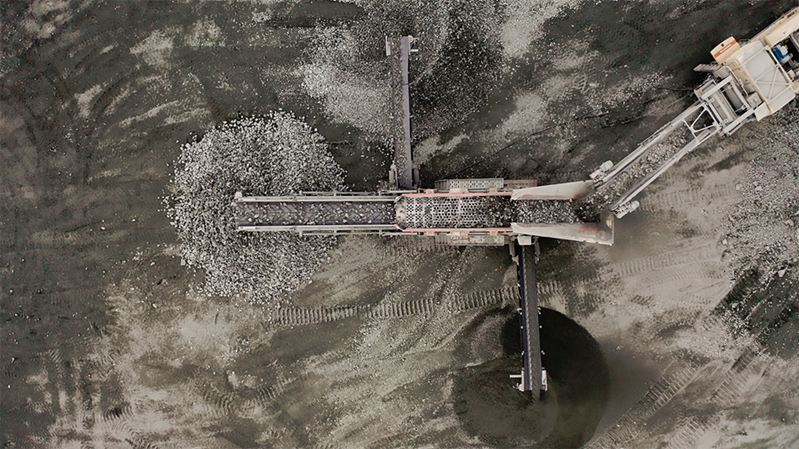
Besides cars, the Norwegian crushing and screening business is also transforming rapidly towards electric drive. Another excellent example of this trend is a major crushing contractor Tverås Maskin & Transport AS (Tverås Maskin), which achieves significant savings with Metso’s Lokotrack hybrid diesel-electric crusher and mobile screen.
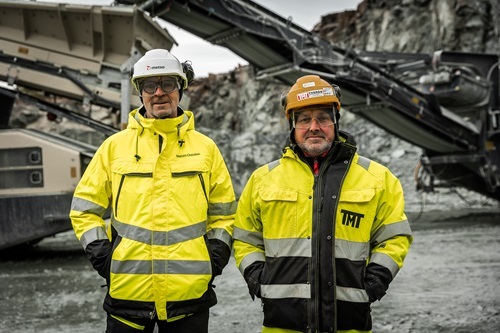
The mobile scalping screen utilises the surplus of electricity the Lokotrack jaw crusher provides. Due to this substantial benefit, the company has taken several steps towards a complete, emission-free quarry operation.
Primary crushing and scalping in Norway are typically carried out as separate processes. Normally, the primary crusher is fed by a dump truck via a chute and short conveyor. After the scalping screen, the clean materials are piled for secondary crushing.
This is exactly how Tverås Maskin contracts a crushing and screening operation at Balhald quarry, near Trondheim, central Norway. Usually, one crushing contract is between 50,000 and 100,000 tonnes.
The main working equipment is Metso’s Lokotrack LT120E hybrid diesel-electric crusher and Lokotrack ST2.8E diesel-electric mobile screen.
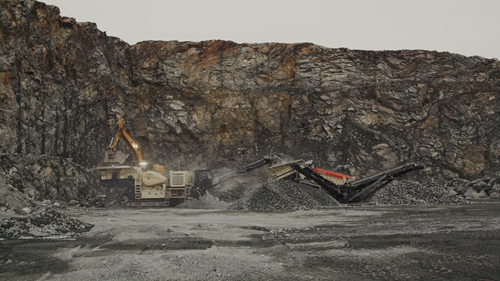
Within the process, the 0-700 mm-sized blasted granite is first crushed to 0-150mm in size by the C120 jaw crusher. After that, fines are removed using the ST2.8E scalping screen.
The core of the hybrid operation is the Lokotrack jaw crusher, where the on-board diesel motor powers a 420kVA generator and electric motor instead of a normal, direct crusher drive. The jaw is not spending all the power capacity created, so the surplus is guided via cable to run the ST2.8E screen.
“By benefitting from the free electricity, we save at least 10 litres of diesel per hour that would normally be used for diesel-driven screening,” Vidar Bjerkås, operations manager at Tverås Maskin, explains. “As electric-driven, our screen now requires about 50% less servicing, while all diesel motor-related service points are minimised.”
According to Bjerkås, more savings are also achieved at the primary crushing stage. “The diesel motor now runs at a steady and rather low rpm when plugged into a generator instead of directly to the crusher. Steady running is a clear fuel-saving aspect.”
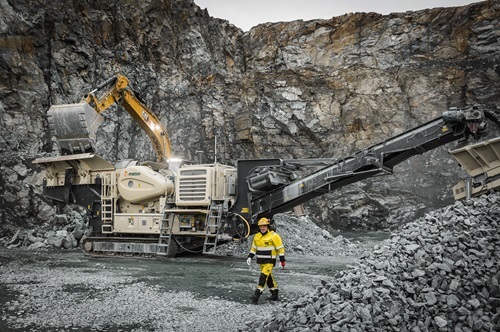
Tverås Maskin and Metso Norway have agreed on an economical and environment-friendly way to deliver essential wear parts on-site. This is called ‘Full Container Load’.
According to this service agreement, a container of high-quality Lokotrack crusher and screen wear parts was delivered directly from the Metso foundry to Tverås Maskin’s work site. After using a part, a new one will be automatically delivered to keep the stock full.
“Together with our customer, we selected which wear parts would be most needed within the Lokotrack crushers and screens. Based on that, a wears selection tailor-made for Tverås Maskin was collected,” says Jan Helge Borgard, area sales manager of Metso Norway.
“This point-to-point wears delivery saves costs, is good for the environment and secures 100% wear parts availability on-site at all times,” adds Borgard.
Tverås Maskin aims for constant and steady production to achieve the most cost-efficient result. At Balhald quarry, while processing hard rock, an average of 180-200 tonnes per hour is crushed and screened, depending on the dump truck travelling distance. A peak production of 500 tonnes per hour has been reached.
The mobile Lokotrack fleet is moved around Norway four to five times a year. The company foresees the possibility to utilise the full electric mobile fleet connected by an external network.
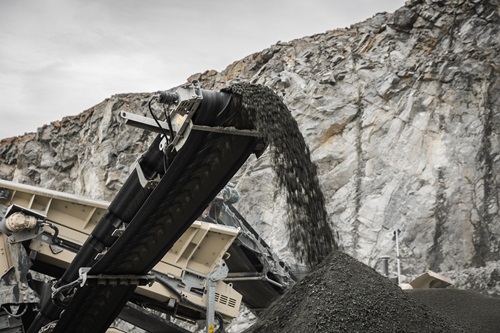
“In fact, without our electric drive option and demand for environment-friendly operations, we would automatically be out of several contract negotiations,” Bjerkås stresses.
“We have had good co-operation with Metso since the 1980s. When meeting any challenge, it’s easy to get connected to the right Metso experts. Together, all obstacles will be solved.”
“Reliability, cost-effectiveness and advanced technology. Those words describe all Metso Outotec products very well,” he adds.
Today, Tverås Maskin operates 11 Lokotrack crushers and screens. The company produces more than two million tonnes of aggregate per year, with its broad customer base including several nationwide clients, such as the Norwegian Road Authority and well-known aggregates and recycling company Fransefoss.













